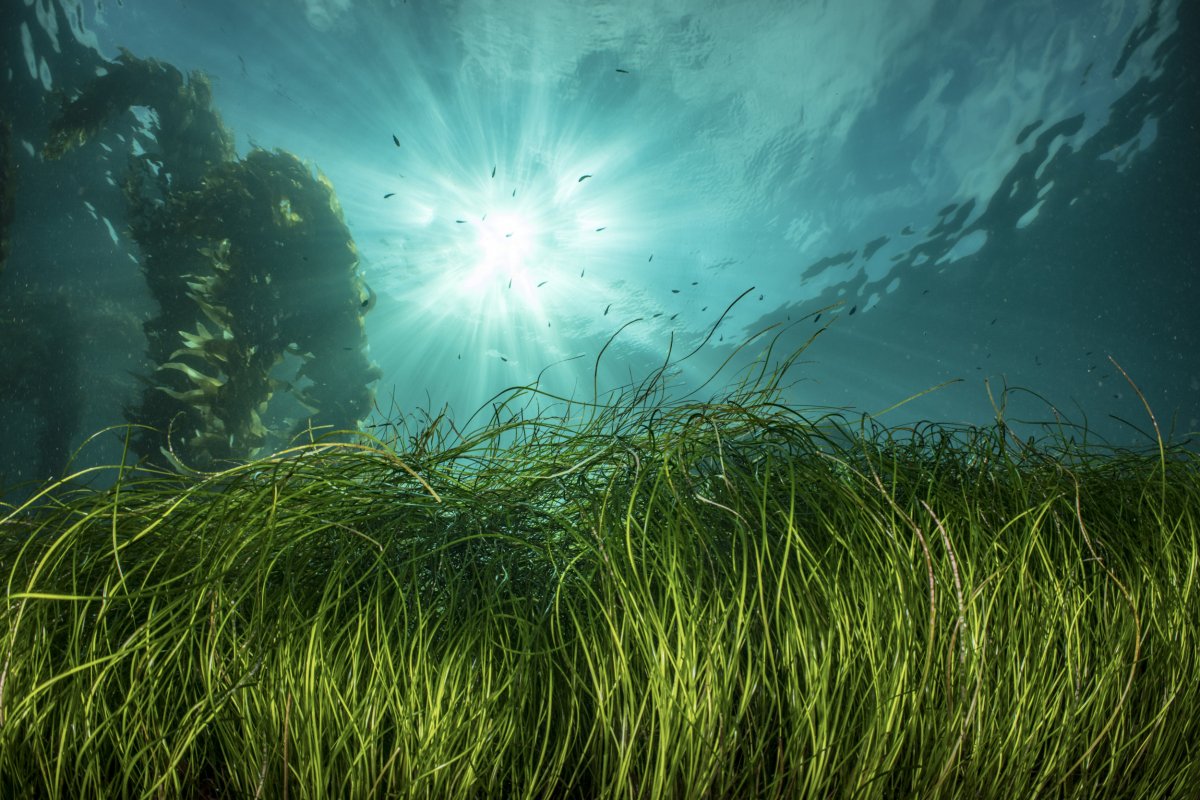Scientists have announced that they have discovered the largest-known clone on the planet—a giant seagrass plant.
While it's not quite a massive Dolly the Sheep, the clone is actually a single, widespread polyploid clone of the seagrass Posidonia australis, spanning at least 180km (a little over 110 miles) in Shark Bay, Western Australia. According to the co-author of the paper released Tuesday, Dr. Elizabeth Sinclair, a senior research fellow at the School of Biological Sciences & Oceans Institute, University of Western Australia, the previous record-holder was only around 50km across.

In 1996, Dolly the sheep became the first mammal to be successfully cloned.
While animal clones, like Dolly, are grown from adult cells and are genetically identical to the single parent, this giant seagrass plant grew from a single seed. According to Sinclair, the difference is that the seed contained a full set of chromosomes from both the pollen donor and the maternal plant, making it polyploid: it has twice as many chromosomes (40 chromosomes) as its diploid oceanic relatives (20 chromosomes).
"Whole genome duplication through polyploidy occurs when diploid 'parent' plants hybridize. The new seedling contains 100 percent of the genome from both parents, rather than sharing the usual 50 percent, and therefore has lots of genetic diversity. This seagrass plant continued growing, expanding through vegetative or clonal growth, where the new shoots are genetically identical to the original seedling," Sinclair told Newsweek.
The near pristine conditions of Shark Bay, which is an International Union for Conservation of Nature (IUCN) World Heritage Area, meant that this huge seagrass has remained relatively undisturbed its entire life, including since European settlement. The plant has been able to continue growing so large through vegetative growth, the way a strawberry plant would in your back garden, extending its runners outwards and growing another little clone of itself where it touches back down on the ground.
This giant seagrass clone has gotten so big that it has begun to make its own environment more stressful to grow in.

As Sinclair told Newsweek: "Seagrass meadows modify their local environment. The leaves 'filter' particles (sediment or soil particles, bacteria and so on) out of the water. The particles then accumulate on the seafloor, keeping the waters shallow and crystal clear. Seagrass also reduces water flow—which is great for protecting coastlines—but in a bay, such as Shark Bay, reduced water flow, combined with low rainfall and freshwater input, the high evaporation rates in summer mean the water gets much saltier. The seagrass now grows in high salinity waters (up to about 1.5 time normal seawater), experiences a high annual temperature range (shallow water heats up and cools down quicker than in the deeper ocean), all of which combined with high light conditions makes the environment more stressful."
Despite these self-inflicted setbacks, Posidonia australis will hopefully be okay in its newly stressful home—polyploid plants (and animals) have more copies for genes, which can be a very effective way of increasing genetic diversity, and this one is very diverse: 90 percent of the 18,000 genetic markers were variable, according to Dr. Sinclair. This may give the polyploid an advantage over normal diploid plants, and enable it to cope with a wider range of environments or different environments from diploids.
Uncommon Knowledge
Newsweek is committed to challenging conventional wisdom and finding connections in the search for common ground.
Newsweek is committed to challenging conventional wisdom and finding connections in the search for common ground.
About the writer
Jess Thomson is a Newsweek Science Reporter based in London UK. Her focus is reporting on science, technology and healthcare. ... Read more
To read how Newsweek uses AI as a newsroom tool, Click here.








